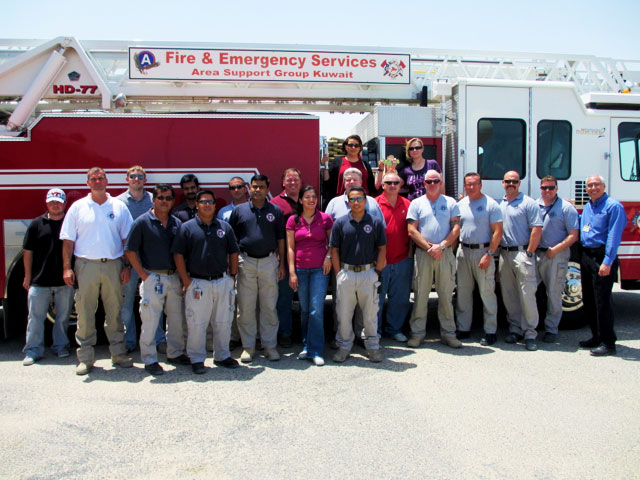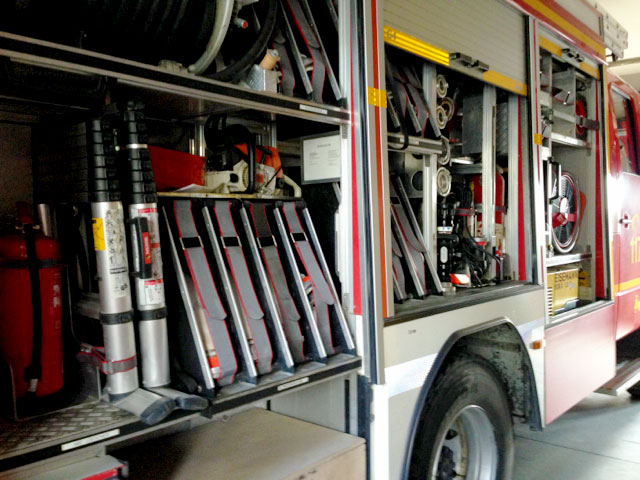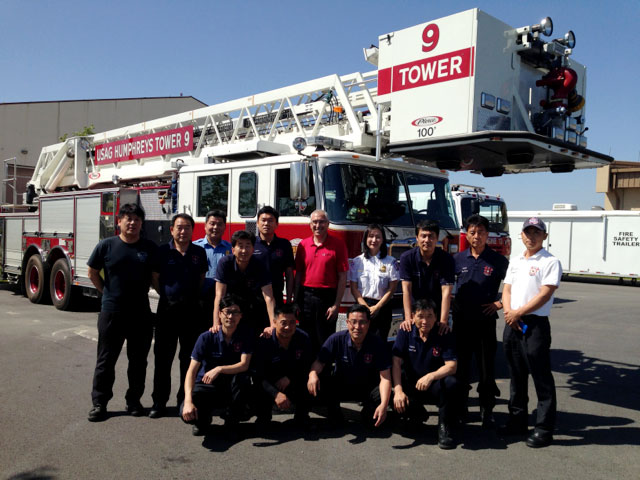Mission-Oriented Worldwide
Since mid-April, I have been privileged to meet Emergency Reporting customers from around the world. These professionals are part of the worldwide community of firefighters, officers, and administrative staff that use our platform to document, analyze, and report on all aspects of their department’s activities.
Until recently, I haven’t traveled outside the United States except for a few trips to Mexico. Never in my wildest imagination would I have thought I’d visit Dubai, Kuwait, Germany, Japan, and South Korea all within a two-month period!
Despite some differences between these countries’ fire services, there is one common trait I’ve observed: the strong sense of service and mission that is the bedrock principle of fire departments across the globe.
Here are some examples of what I saw:
Kuwait
Attention to Detail
The mission to serve internal customers was apparent at Camp Arifjan in Kuwait. The team there wanted to more effectively manage their fleet using our Maintenance Module. Everyone, regardless of their position in the organization, rallied around the maintenance division to support this idea.
As a result of their input, we were able to deliver an updated report to them within 24 hours. They also submitted an idea for having part of our Calendar Module appear on the Welcome Page. Firefighter Todd Erslev even did a mock-up of how the page would look with the new addition!
This team in the Eastern Arabian Desert was energized to deliver a higher level of service to the U.S. Army community and to each other. This department excels at “serving those who serveâ€.
Germany
Feeling at Home
I shouldn’t be surprised, but simply visiting international and U.S military fire stations, I felt at home. A firehouse dayroom just gives you that feeling, even in the middle of Germany.
Thankfully for me, English really is becoming the universal language. Every place I went, crews knew just enough to communicate with me as I stumbled through a few phrases in their native tongue. When words failed us, all we had to do was walk out to the apparatus bay. There was nothing but smiles as they showed us their rigs and equipment.
We could learn so much from how the Germans organize their compartments. They demonstarted an unbelievable tidiness—a place for everything and everything in its place. Their systems for storing equipment on apparatus appealed to my OCD tendencies in a big way. Just opening a compartment we could see the pride and ownership that contributes to their mission of delivering outstanding service.
One other thing the Germans get right: The Autobahn. Driving on their highway system will forever be a favorite memory of my first trip to Europe.
Japan & South Korea
Breaking the Language Barrier
The language barrier was the most difficult for me in Asia. During our classes in the States, there is typically ample dialog between an instructor and the students. You know what I’m talking about: ongoing questions and answers, the occasional off-tangent explanation, or just some friendly banter.
Not as much in Asia. The South Koreans were especially quiet and respectful. I mistook their lack of interaction for a lack of understanding. But once they began practicing what I taught them, it was clear they had absorbed everything. I learned from Chief Alex Temporado of USAG Yongsan that their reserved demeanor was the respect they were showing me as their guest and instructor.
In Korea, the classroom is much more of a teacher-centric environment than in the U.S. Fortunately, Asian students are typically strong visual learners. That trait was a perfect match for my teaching style. Their inherent respect for instructors and the rank system complements their sense of mission. They want to know how to best serve their community through clear and direct instruction.
I also learned that even though South Korea has become the fourth largest economy in Asia, they still are struggling with fire and life safety issues. Two of my hotels did not have fire sprinklers, but they did have a bailout harness and smoke hood. In fact, while I was in Korea, smoke from a nursing home fire killed 21 people.
America
Home Sweet Home
It’s been a whirlwind of travel over the past two months. There truly is no substitute for visiting other countries to gain an appreciation for the diversity in language, culture, and traditions. Despite all these differences, there is one thing fire departments worldwide have in common: The desire to contribute in meaningful ways to make their communities safer. That mission is universal.
Stay safe
Sicher Bleiben





